KLEROS - A Fast, Inexpensive and Secure Way to Resolve Disputes for Virtually Everything on the Blockchain
Decentralized global platforms are gaining more grounds in the market in terms of goods, services, capital and labour in this modern technological era. However, we have to be cognizant of the fact that there would be disputes or disagreements among peoples in the global, digital and decentralized economy.
The problem with the existing method of dispute resolution is that: the existing methods of resolving disputes or disagreements among peoples in the global, digital and decentralized economy are too slow to fulfilments; too unreliable to trust; and too expensive to practice. Moreover, most of the disputes spring up in unsuitable areas where the states courts and existing dispute resolution methods find it very difficult to settle them.
The introduction of Kleros into the allocation of goods, services, labour and capital through the decentralized global platforms serves four major benefits and advantages that gives ultimate and effective judgement ahead of other existing dispute resolution methods, and they includes:
- A fast method of dispute resolution
- An inexpensive dispute resolution method
- A dispute resolution method which is transparent
- A reliable method of resolving dispute
As a result of this, Kleros is a blockchain dispute resolution layer built on top of the Etherium that brings about a connection between users that has disagreements among themselves and need to solve them, with a group of skilled individuals chosen from the crowd to hear, decide and fairly settle them in a fast, secure and efficient manner.
The processes or steps in which an arbitrator is used to resolve a dispute between two or more parties by Kleros is completely automated. Kleros does not give judgement based on the honesty of some peoples but on an economy that is motivated by earned point towards the actualization of winning a stake.
The concept of Schelling point was brought into existence by Thomas Schelling, who was then a game theorist. He described it as a solution that seems real and important to people, thereby, probably causing them to use it in the coordination of their conduct relative to social norms when communication is not possible.
Schelling point comes into application when nothing can be communicated. Moreover, it also apply when communication is possible, but there is no enough evidence or cogent reasons to make either party believe what the other is saying to be true and nothing but the truth.
Every holder of Shelling coin have the right to vote when situation arises. For instance, if we want to know whether a bag of rice sells for $40 or $50 in Nigeria, every holder of shelling coin could be asked to vote by secret ballot, and after casting all votes, the result would be revealed. The parties that win the vote would have 10% of their coin to themselves while the party that lost would loose 10% of their coins.
The working principles of Kleros is similar to that of Schelling coin mechanisms in one way or the other, but slightly modified for the purpose of security, scaling and subjectivity.
1. Creation of a Smart Contract
This is where users create a smart contract and design Kleros as the protocol to whom the authority to settle or judge a dispute is delegated. The contract creators are responsible for choosing the number peoples that hear or decide a case in a court and which court will rule their contract prior to when dispute or disagreements spring up. They are allowed to select a court that are specialists in what their contracts deals on. For instance, a housing development contract will choose a court that specializes in housing.
Availability of Options for Jurors to Vote: The jurors would choose or select from available options of voting system specified by the contract.
Privacy: There is need for personal informations to be known by jurors for them to effective solve a dispute. In a view to avoid infringement of privacy from the general public, the natural language of the jurors ( be it English, German or others) and the voting options available for the jurors to select from are not put on the blockchain. All these steps are taken care of by the applications users will run while Kleros is in use. The jurors are the only one that receives the texts of the contract and of the options, which is made possible by the use of asymmetric encryption.
2. Designation of Jurors
System Token (The Pinakoin): Users are motivated by the economic interest they stand to gain when they serve as jurors on Kleros. In essence, they are motivated by the arbitration fee that every jurors get for their works on Kleros. The pinakoin token is being used by users to self-select themselves. The amount of pinakoin token a juror deposits determines the probability of selecting thr juror for a specific dispute (I.e the higher the token deposited, the higher the probability of being drawn as a juror to settle a specific dispute at hand). The two major functions of pinakoin token in the design of Kleros are:
- It protect the system from the attack of malicious party that may want to take control illegally.
- it also prompt jurors to vote honestly because they loose part of their deposit if they do not conform with others.
Selection of Jury: There would be a random selection of jurors immediately after candidates have selected specific suitable courts by themselves and deposited their tokens. A candidate maybe selected many times to solve a specific dispute. Generally, the number of votes a user gets in a dispute and the amount of token that he will win or lose when the token is redistributed depends solely on the number of times the user is drawn for a dispute ( which is referred to as weight).
Let's look at an example of tokens deposited and drawn member of the jury. In the figure below, 6 token owners applied for the dispute and 10,000 in total.
In the diagram above, we would see that 5 tokens ( I.e 1+1+2+1) are drawn out of the deposited sum of 10,000 simply because the dispute requires 5 votes. The tokens which are drawn are represented in transactions figure as number 2519, 4953, 2264, 3342 and 9531. The owners of token tagged B, C and F are drawn for the dispute for just one time (weight of 1). Token owner D was drawn 2 times for the dispute (weight of 2).
Generation of Random Number: Random numbers are generated in a process which can not be manipulated so that a juror can be effectively drawn and a dispute can be reliably solved in the right way. The steps of generating these random numbers include initialization, computation of the master random value, getting results on the blockchain and getting all random values generated.
3. Commitment of Votes
After the value of all evidence have been determined, estimated or judged, jurors commits their votes to one of the options given to them. The jurors vote cannot be altered after the commitment. Moreover, the votes of one juror cannot be seen by another juror or party, so as to prevent a juror from voting under the influence of the vote of another juror.
All votes are revealed after all jurors have voted. Meanwhile, jurors that refuse to vote or infringe the rule or regulation of the system will be subjected to a penalty. The votes are counted and the option with the highest number of votes win it.
4. Payment of Arbitration Fees:
When there is need for a dispute to be created or an appeal to be done, there it need for an arbitration fees which serves as a compensation for jurors for their works and helps to prevent the system from being spammed by an attacker. The party that would be responsible for payment of the arbitration fees will be determined by a smart contract which is subject to arbitration.
5. Appeal
A party can appeal and have a dispute arbitrated again if he is not satisfied with the decision made by the jury. In the case of an appeal, the number of jurors would increase by the previous number of jurors plus one, and an appeal fees would be paid. As the number of appeals increases, the arbitration fees also increase drastically so as to prevent an appeal to be made in high number of times (which might in turn prevent the system from attacks of bribing jurors).
6. An economy motivated system
Jurors of the Kleros system are motivated to rule honestly because, at the end of a dispute, jurors with coherent votes gets a certain percentage of the jurors token whose votes is not coherent with the group. Tokens are released from a lock state and redistributed after Kleros has reached a conclusion on the dispute.
7. The Act of Resisting Attack
Purchasing Half of the Tokens: A party or a group of party has the power to control and decide the results of a dispute in the general court when they buy half of the token. In spite of this, the system is designed in such a way that a fair distribution of the tokens makes it quite unlikely for a party to buy more than half the token.
Resistance to Bribe: appeal is a vital measure of preventing bribe within the system. Bribing a small jury might seem easy, but since a victim has the right to make an appeal, the attacker would spend a large sum of money as he keeps on bribing a larger and larger number of juries all the way to the general court on a case which he might very likely lose at the end of it all. So, it doesn't really worth it because the system has the power to withstand the attacks of bribes under certain conditions.
8. Tree Structure of Court
Users begin in the general court when applying as jurors. They then streamlined to a specific sub-court in their area of specialization in respect to their skills.
There are some given characteristics attached to each sub-court such as policies, cost, time of session, amount of tokens activated and number of jury members that are selected.
9. The Mechanism of Governance
As the protocol of Kleros gain users and potential scenarios in which the system receives an external request and responds to it, there in need for new sub-courts to be established, with the aim of bringing about changes in the sub-court policies and parameters and to modify the existing platform to new versions with improved and more effective features. The holders of the pinakoin token makes use of a voting system which is liquid in nature to put forth such decisions.
The amount of vote a token holder have depends solely on the amount of pinakoin token in his possession. They can vote directly or authorize a person to act as a representative for their vote. The voting power of a user is automatically given to his delegate when he refuses to vote. The functions of the governance mechanism include the following:
- Determination of policies which serves as guidelines on the arbitration of disputes.
- Modification of subcourts such as removing or adding subcourts and modifying the level of subcourt.
- Modification of parameters in subcourts such as court session time, arbitration fees and the lowest amount of token to be activated.
- Put up a change in one of the smart contracts Kleros depends on.
Freelancing
Friedman stated in 2005 that the place of work all over the world is changing from existing relationship between employers and employees to modern arrangements involving the work by freelancers which are far off across continents and capable of being influenced by others. There's need for fast and simple resolution of disputes when one arises.
A lot of disputes is created by the Amazon Mechanical Turk platform in the gig economy but they lack an effective dispute resolution system. Most of the technology companies are only interested in the connection of supply and demand. They do not take responsibility for the resolution of conflicts or disputes. The Kleros arbitration system could provide solutions to those disputes that pops up in global platforms.
Crowdfunding
There has been a lot of scam and unfulfilled promises on the ability of a teams to give results as promised to backers in crowdfunding. A new software organization may establish a crowdfunding agreement that a certain amount of payment would be made after version 2 of a software is launched. Nonetheless, some backers may come up with a claim that "the so called version 2 is version 1 with some interesting features added to it and some corrections.
Kleros protocol might come in place and analyze the evidence and make decisions consequently. Moreover, contracts that may arise in the nearest future in relation to crowdfunding may come into agreement with Kleros to use them as default arbitration procedure for future occurrences.
Small Claim Arbitration
In 2002, the number of cases that went to trial in American federal courts had fallen to 1.8% from the 11.5% cases that was recorded in the early 1960s. The reduction is not due to a reduced number of disputes, but because of the influence of the using other possible methods to resolve disputes (Katsh and Rabinovich-Einy 2017, p. 14). The government supported the use of other alternative dispute resolution in different areas due to low costs. The era of Kleros will most likely include the arbitration of small claim.
Kleros can be applied in a lot of small claims such as in the repair of a motorcycle was not done in a proper manner, the customers of a bank debited for money they did not withdraw, a student that did not get the expected teaching from a teacher or institution he has paid and applied for.
Social Media
The rate of online interactions is on the increase in our modern world. As these interactions go on, there would be problems of harassment, fake informations, bad reviews and invasion of privacy. These interactions may lead to loss in integrity and money and damage of human mind.
For instance, let's say Samuel and Charles are chatting on a decentralized social media platform, and there's a little misunderstanding between them. As the misunderstanding grew, Samuel flags Charles for a comment that does not conform with the terms and conditions of the media platform, but Charles claimed that he did nothing to violate the terms and conditions whatsoever.
Few hours later, Informations were transferred to a jury of Kleros and the evidence were analyzed by this jury and they came to a conclusion that the comment of Charles did violate the terms and conditions of the platforms and his reputation points is reduced by 20points.
Mr Stones and Mr Bean are working for a software company. They were told by the company to develop a software application for buying and selling at a given price. They both agreed to the price and they go on with the job. Meanwhile, Mr Stone is a professional in building a buying software app and Mr James is a professional in building a selling software app, but none of them is good at both parts.
As a result, they decided to work together and share the profit equally. However, After completion, they delivered the work but the company complained that they are not satisfied with the selling part of the software application that was designed and they had to reduce their money by 10% of the agreed amount.
Mr Stone was furious, and decided that he would have to collect his own 50% of the agreed amount, While Mr Bean would take the remaining 40% since he did his own Job well. But, Mr Bean insisted that they would have to share it equally ( that is, each person takes home 45% of the payment)
After some large amount of users had activated their pinakoin for the disputes, Three jurors were drawn. All the way to Asia, Mr Smith received an email from Kleros that he has been selected as a juror on a website quality dispute. The same message was also sent to Mr Joshua that lives in West part of Africa and a native American named Mrs Dorcas.
After 3days, all the jurors had finished voting, Mr Smith and Smith Bean received an email of the result. The jury had ruled for Mr Smith. They voted that Mr Smith and Mr Bean should share the money equally. A smart contract has transferred the money to both of them. The jurors got their reward for the work and case is closed.
The legal system has found it hard to solve the disputes or disagreements of the internet age led platforms such as Alibaba or eBay to put forth their own measure of arbitration mechanism. The existing methods or system of solving situations when a dispute arises is very slow, expensive and unreliable. However, Kleros is here with a handful of tools and mechanisms as they look forward to become that effective system of resolving disputes in virtually everything in the global age.
- July, 2018: They will be Launching on Early Pilots Main Net
- October, 2018:The First Version with Real Enforcement will be released
- April, 2019: Multiple subcourts and governance mechanism will be released
- July, 2019: The Release of abstraction
- September, 2019: Release of Complex Dispute and more additional features
The Partners
- Kleros Website
- Kleros Whitepaper
- Kleros Github
- [Kleros Twitter](Kleros Twitter)
- Kleros Youtube
- Kleros Medium
Kleros2018
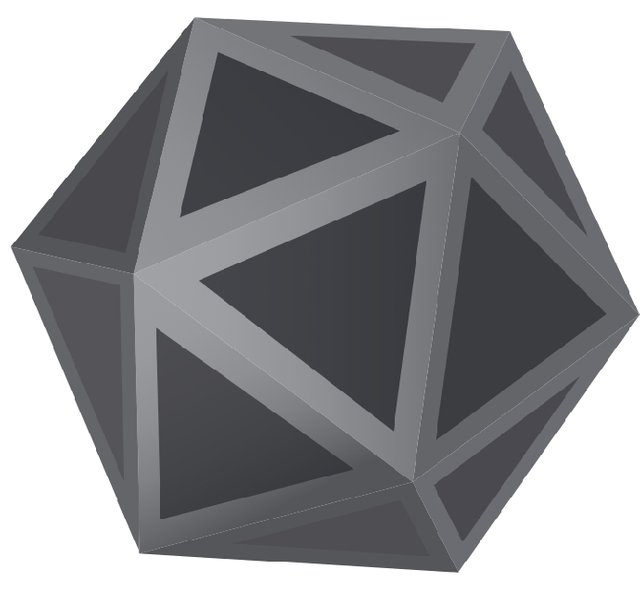
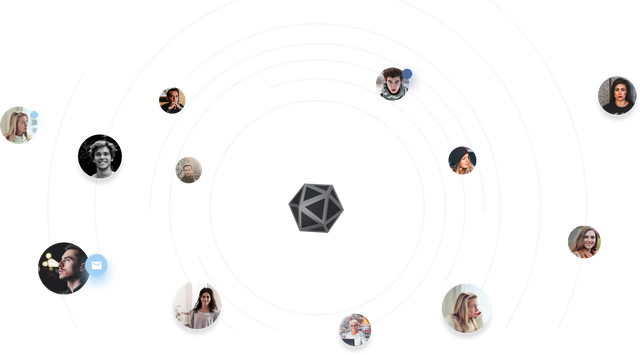
.jpeg)

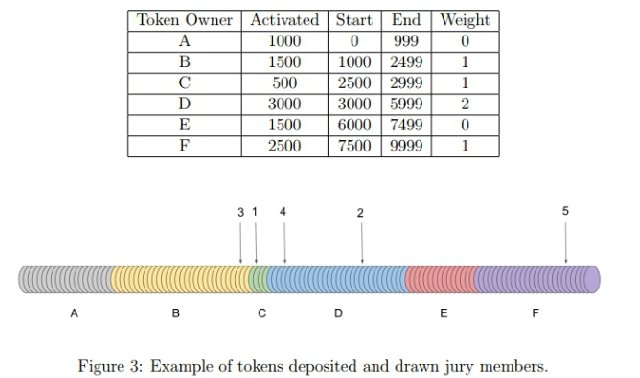

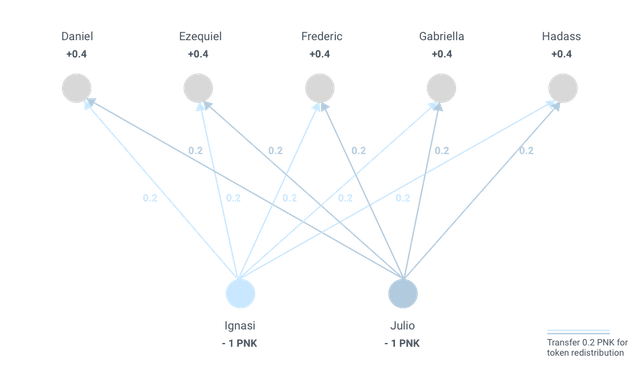
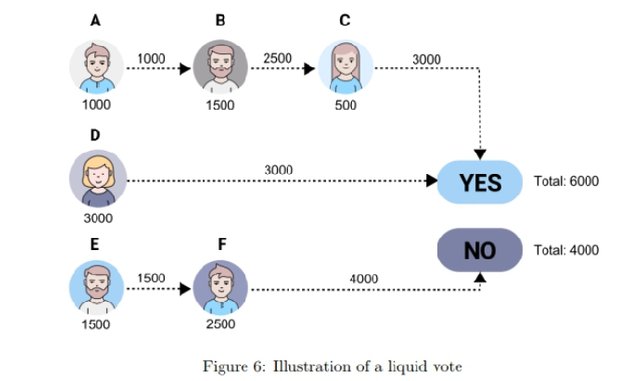
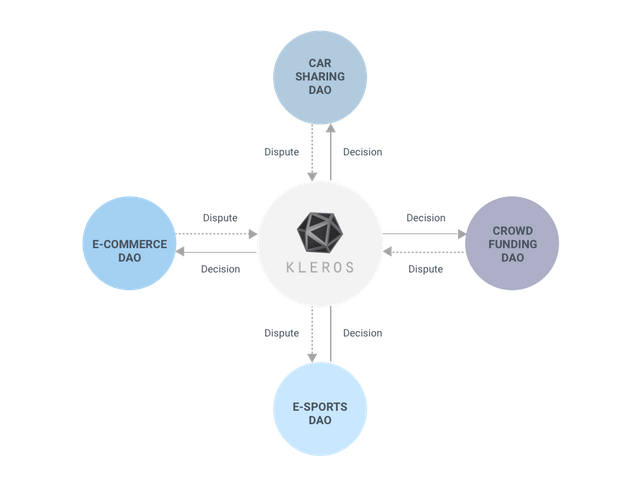
This post has been submitted for the @OriginalWorks Sponsored Writing Contest!
You can also follow @contestbot to be notified of future contests!